
In competitive sports and daily sports, sports injuries accompany them like shadows. At the lightest, they affect training, and at the worst, they may end an athlete's sports career. Traditional treatment methods such as physical therapy, medication or surgery are effective, but they have a long recovery period and a high risk of complications. In recent years, mesenchymal stem cells have been widely used in the repair of various sports injuries and have been proven to be safe and effective. This article summarizes the literature to take stock of the data on mesenchymal stem cells repairing cartilage injuries, tendon injuries and bone injuries, involving a total of 759 patients in 23 clinical studies, and summarizes the cell doses used in each clinical application. and the clinical conclusions obtained, in order to help you further understand the role of mesenchymal stem cells in the repair of sports injuries through medical data.
In today's fast-paced life, sports injuries are not uncommon. Common sports injuries include knees, shoulders, ankles, elbows and wrists.
There are six criteria for determining the severity of sports injuries, including the nature of the sports injury, duration of treatment, permanent injury, cost, lost work and exercise time.
The current management of sports injuries is very complex, and common include PRICE (protection, rest, ice, compression and elevation) therapy, anti-inflammatory drugs, physical therapy and surgery.
In recent years, Mesenchymal Stem Cells (MSCs), as an emerging treatment method, have shown great potential in the field of sports injury treatment with their unique repair and regeneration capabilities.
Mesenchymal stem cells are widely found in bone marrow, fat, umbilical cord and other tissues. They are stem cells that can self-renew and differentiate into multiple cell types.
Mesenchymal stem cells can not only differentiate into various tissue cells such as cartilage, tendon, and bone, but also have strong immunoregulatory and anti-inflammatory effects. They can also secrete paracrine factors, regulate host immune response, promote angiogenesis, enhance cell migration and survival, and prevent fibrosis.
Mesenchymal stem cells can effectively promote the repair and regeneration of damaged tissue, so they are widely used in the repair of various sports injuries.

Recently, the journal Stem Cell Technology published a review. By sorting out relevant reports such as preclinical and clinical research, it finally confirmed that mesenchymal stem cells are safe and effective in the treatment of sports injuries such as bone, cartilage, tendons and skeletal muscle.
Clinical summary of mesenchymal stem cells for repairing cartilage damage
Many studies have demonstrated the benefits and effectiveness of MSC therapy on cartilage regeneration. Combined with clinical cases, the clinical study results reported so far have found that MSC therapy is safe and feasible. The use of MSC can significantly improve the structure and function of cartilage in patients with knee arthritis, reduce pain and promote the regeneration of damaged cartilage.
The following table lists clinical studies using MSC to treat cartilage injuries.
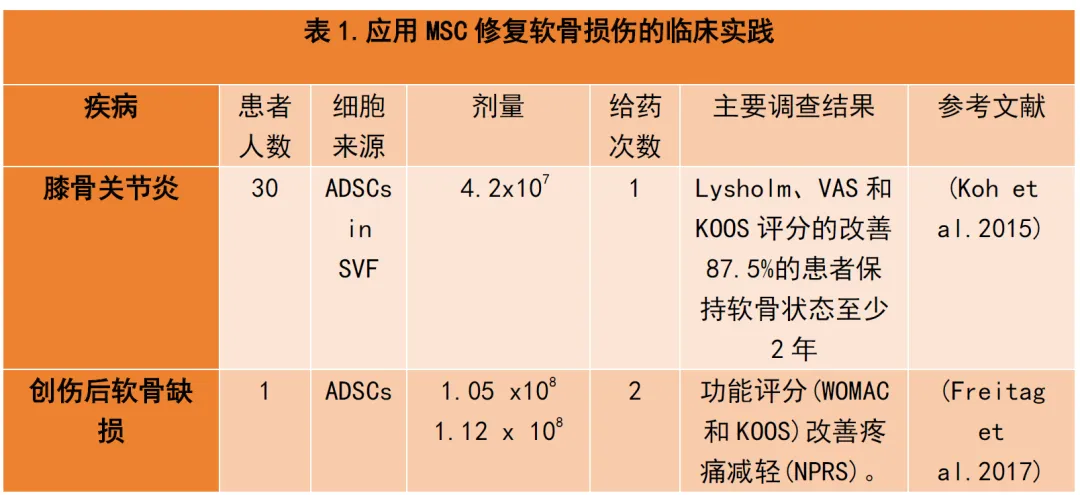
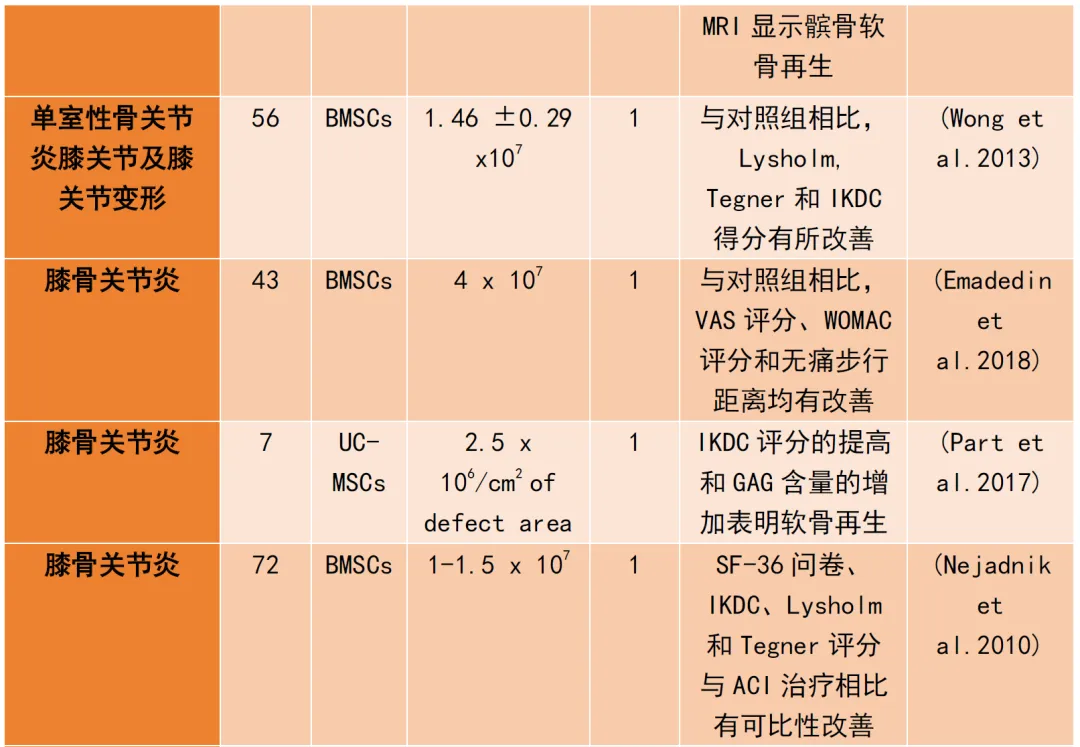
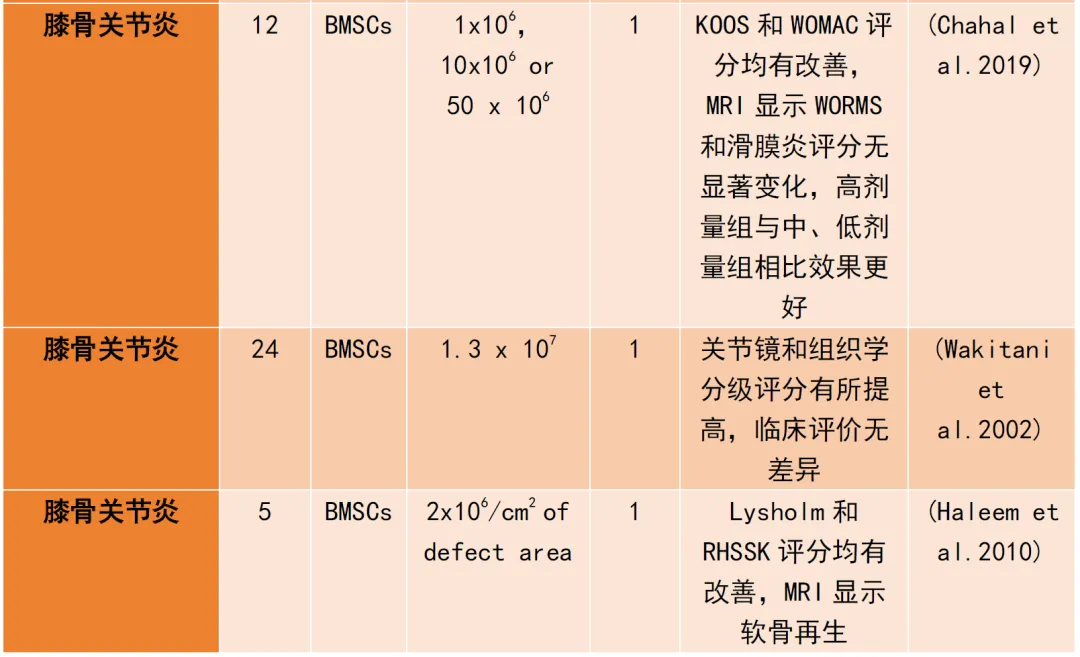
Clinical summary of mesenchymal stem cells in repairing tendon injuries
Tendons and ligaments have similar cellular compositions and mainly serve as attachment points between muscle and bone. Clinical studies have demonstrated the clinical potential of MSC therapy in tendon repair. Table 2 summarizes clinical studies of MSC for the treatment of tendon injuries.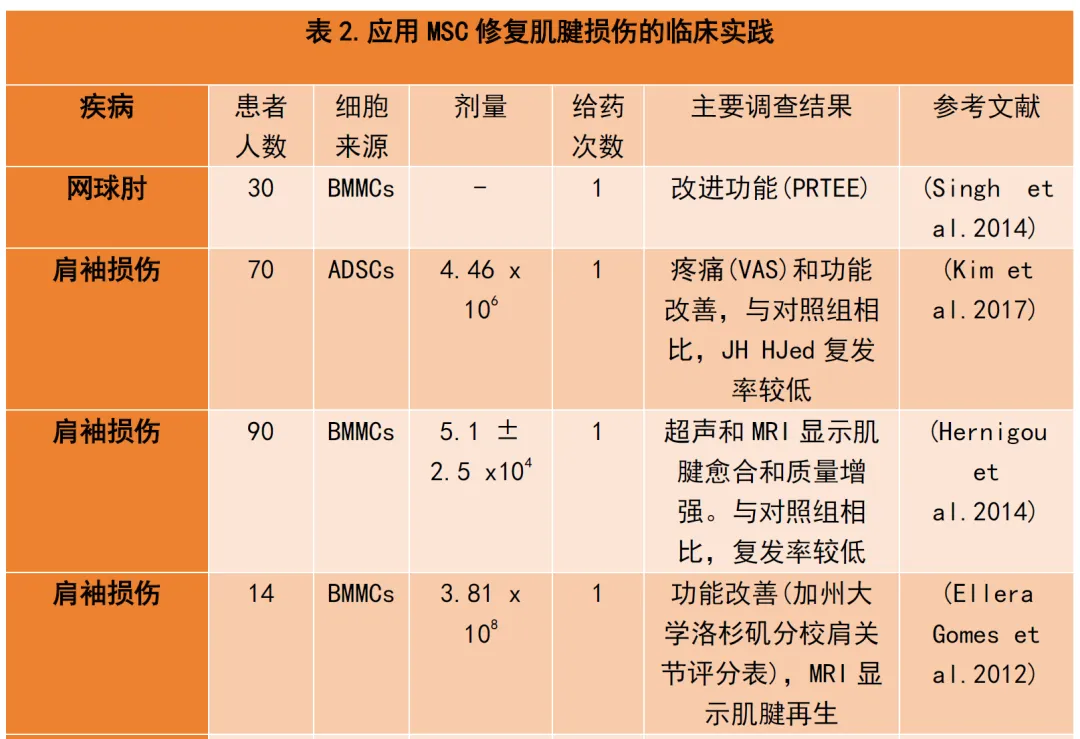
 The above studies have shown that MSC can play an injury repair role in tennis elbow, rotator cuff injury, patella tendon injury and other types, can reduce patient pain, significantly improve the function of the injured site, and reduce the rate of re-injury.
The above studies have shown that MSC can play an injury repair role in tennis elbow, rotator cuff injury, patella tendon injury and other types, can reduce patient pain, significantly improve the function of the injured site, and reduce the rate of re-injury.
Clinical summary of mesenchymal stem cells in repairing bone damage
The current standard medical procedure for clinical treatment of fractures is immobilization-reduction-fixation-functional recovery, especially for fragile fractures that cannot heal within an appropriate time. Previous studies have shown that MSCs secrete various paracrine factors, such as vascular endothelial growth factor (VEGF), bone morphogenetic protein-4 (BMP4), and bone morphogenetic protein-6 (BMP-6), which enhance angiogenesis and bone formation.
Therefore, there is no lack of clinical cases of using MSC to treat fractures. Table 3 lists clinical studies using MSC to treat bone injuries.
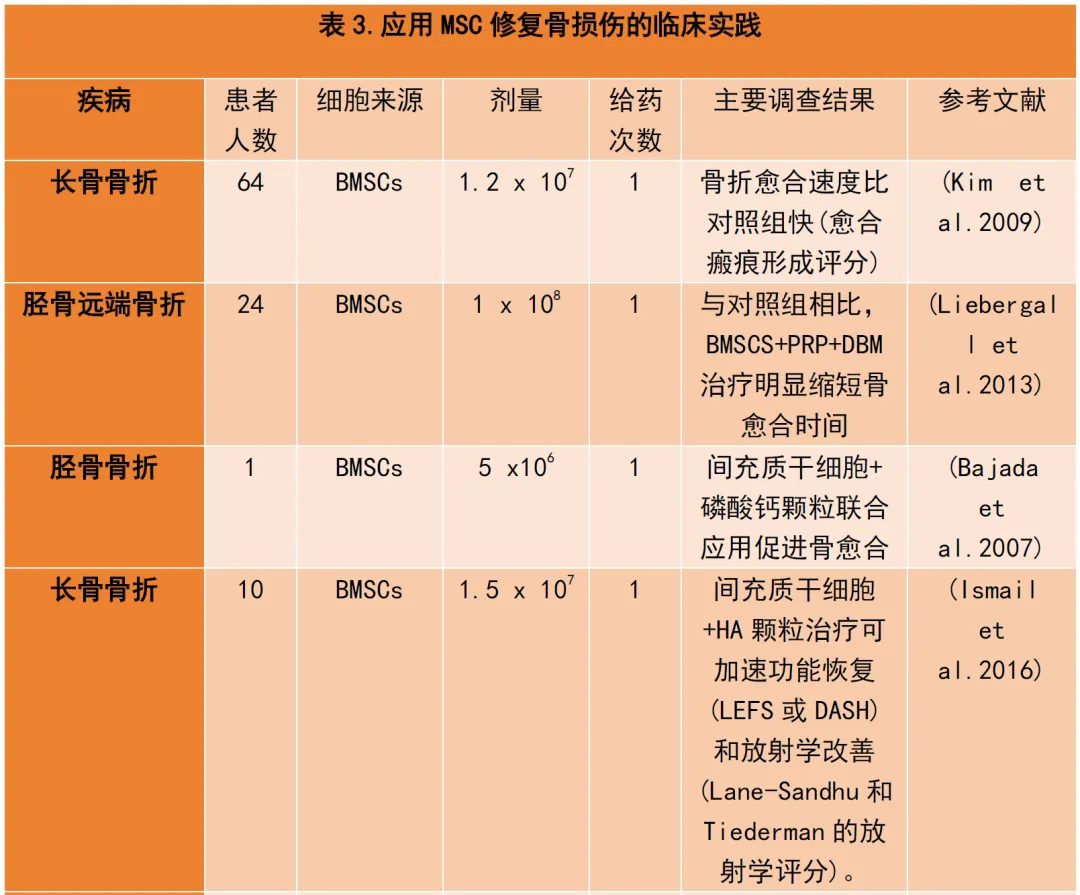
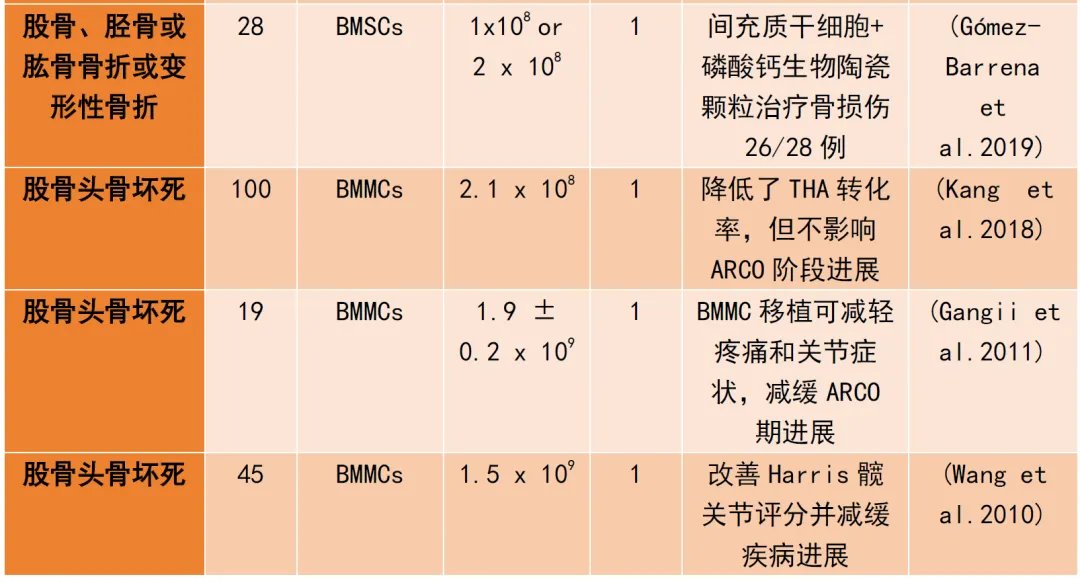
MSC has the ability to undergo osteogenic differentiation and is therefore widely used in clinical orthopedics. Through the above clinical cases, we can find that MSC treatment is safe and effective for common orthopedic diseases such as long bone fractures and femoral head necrosis.
More and more clinical studies have confirmed that mesenchymal stem cells have great potential in repairing sports injuries, but their clinical application still faces challenges such as standardized preparation, determination of the best treatment plan, and long-term safety and effectiveness evaluation. In the future, with the deepening of scientific research, mesenchymal stem cells are expected to become the mainstream method of treating sports injuries, bringing safer and more efficient treatment options to athletes and sports enthusiasts.
Summary
As more people participate in sports, especially extreme sports where injuries are prone to injury, the number of sports-related injuries is rising. To date, many clinical studies have reported the safety and effectiveness of MSC therapy in promoting sports injuries. With their unique therapeutic potential, mesenchymal stem cells are bringing new hope to the treatment of sports injuries, allowing the "faster, higher, stronger" sports spirit to bloom more brilliantly with the help of science.